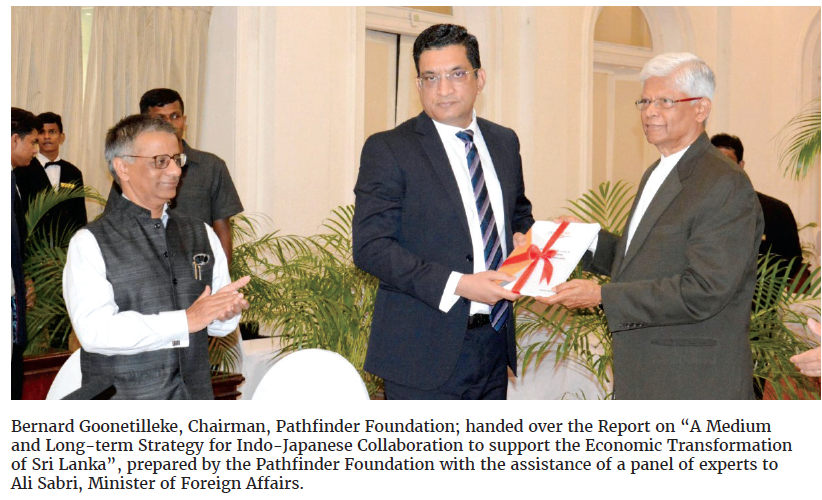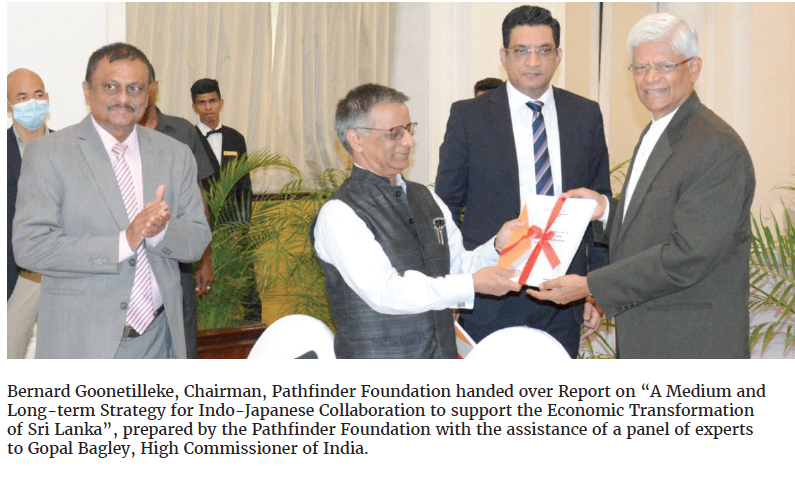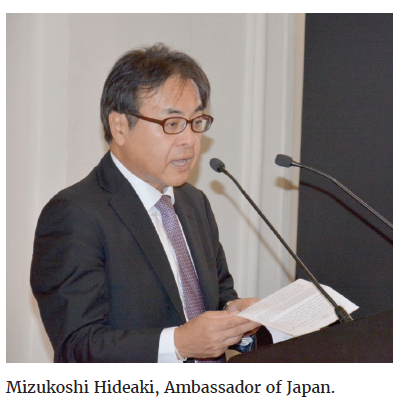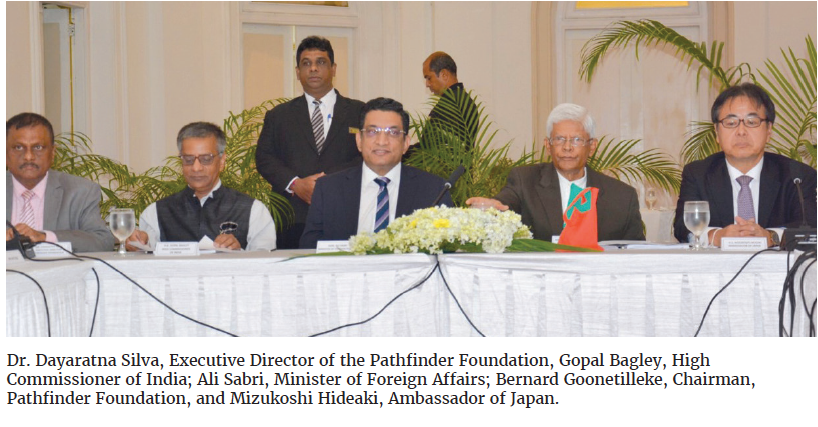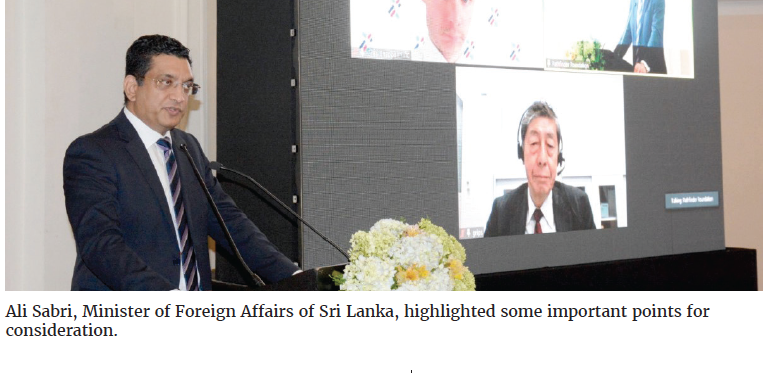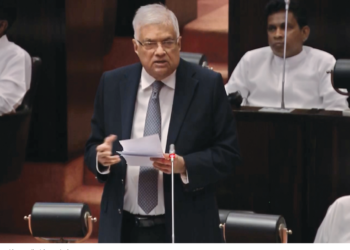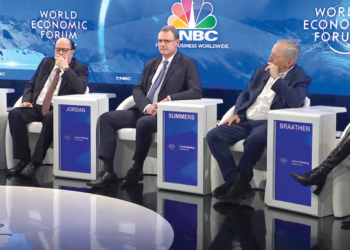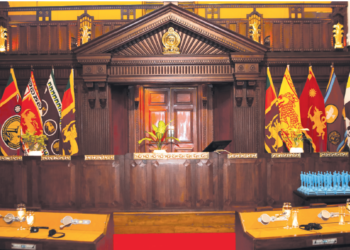The Official Launch of the Report on “A Medium and Long-term Strategy for Indo-Japanese Collaboration to Support the Economic Transformation of Sri Lanka”, prepared by the Pathfinder Foundation with the assistance of a panel of experts, was held in Colombo. Ali Sabri, Minister of Foreign Affairs, was the event’s Chief Guest, with Gopal Bagley, High Commissioner of India, and Mizukoshi Hideaki, Ambassador of Japan, gracing the occasion.
The event was organized in collaboration with the International Trade Centre (ITC), Geneva, and representatives from several government and private sector agencies attended. Bernard Goonetilleke. Chairman, Pathfinder Foundation; handed over the Report to Ali Sabri, Minister of Foreign Affairs.
The report has suggested a strategic response to transforming the economy, focusing on four priority sectors in which Indo- Japanese collaboration is sought to put the country on a sustainable growth trajectory for a structural shift. In his welcome remarks, Chairman Bernard Goonetilleke, while thanking all the experts who contributed to the report, highlighted that two countries – India and Japan as very close development partners of Sri Lanka, who have much to contribute to reviving Sri Lanka’s economy. He added, “India’s interest in the welfare of the country and its people was evident in granting generous credit and other facilities amounting to almost 4 billion U.S. dollars in the recent past to overcome the economic crisis. Likewise, Japan has been a country which had generously provided economic support going back many decades”.
Ali Sabry, Minister of Foreign Affairs, highlighted some important points for consideration. He urged all think tanks, such as Pathfinder Foundation, to look into areas a typical politician would need to comprehend and push for necessary changes. He also reiterated that a politician should have the humility to listen and learn from experts on the subject, encouraging think tanks to engage with the public and share populist policies.
Gopal Bagley pointed out that Sri Lanka occupies a unique place in India’s foreign policy mainly due to neighborhood-first policy of India. He added that India stands ready to assist Sri Lanka in overcoming the current economic crisis.
Mizukoshi Hideaki also expressed his sincere hope that this year will be the beginning of an economic revival providing a springboard for future development for Sri Lanka. He also mentioned that Japan had been a long-standing partner in Sri Lanka’s socioeconomic development.
Dr. Dayaratna Silva, Executive Director of the Pathfinder Foundation, introduced the 120 pages-long reports explaining its main thrust and the rationale for sector selection as the key drivers for the structural transformation of the economy. Sector experts made presentations at the technical sessions covering the role of the four sectors in transforming the economy, existing policy framework gaps, and key recommendations for triangular cooperation.
The topic of session one was Low–Carbon Power Generation, which discussed renewable energy, LNG, and grid connectivity utility between Sri Lanka and India—the lead speaker of the session, Eng. Gamini Senanayake provided essential perspectives on the subject. The second session covered the Development of Trincomalee as an Energy Hub, presented by T.F. Nimal Perera and Prof. I. M Dharmadasa, contributed ideas on the future of green energy and issues relating to the proposed nuclear power generation in Sri Lanka.
Technical sessions continued with Rohan Masakorala and Dimantha De Silva explaining their recommendation on the Logistics and Connectivity sector, which included ports, railways, airports, and ferry transportation.
The final session included valuable insights on Education by Prof. Siri Hettige, followed by recommendations for the Tourism sector by industry experts Dr. Vipula Wanigasekara and Dr. Malraj Kiriella.
The technical sessions concluded with Eng. Sena Peiris and Nihal Cooray spoke on the important topic of “Training and skills development”.
The technical sessions were concluded with the active engagement of all participants, who appreciated the timely initiative taken by the Pathfinder Foundation and urged follow-up action to disseminate information.
